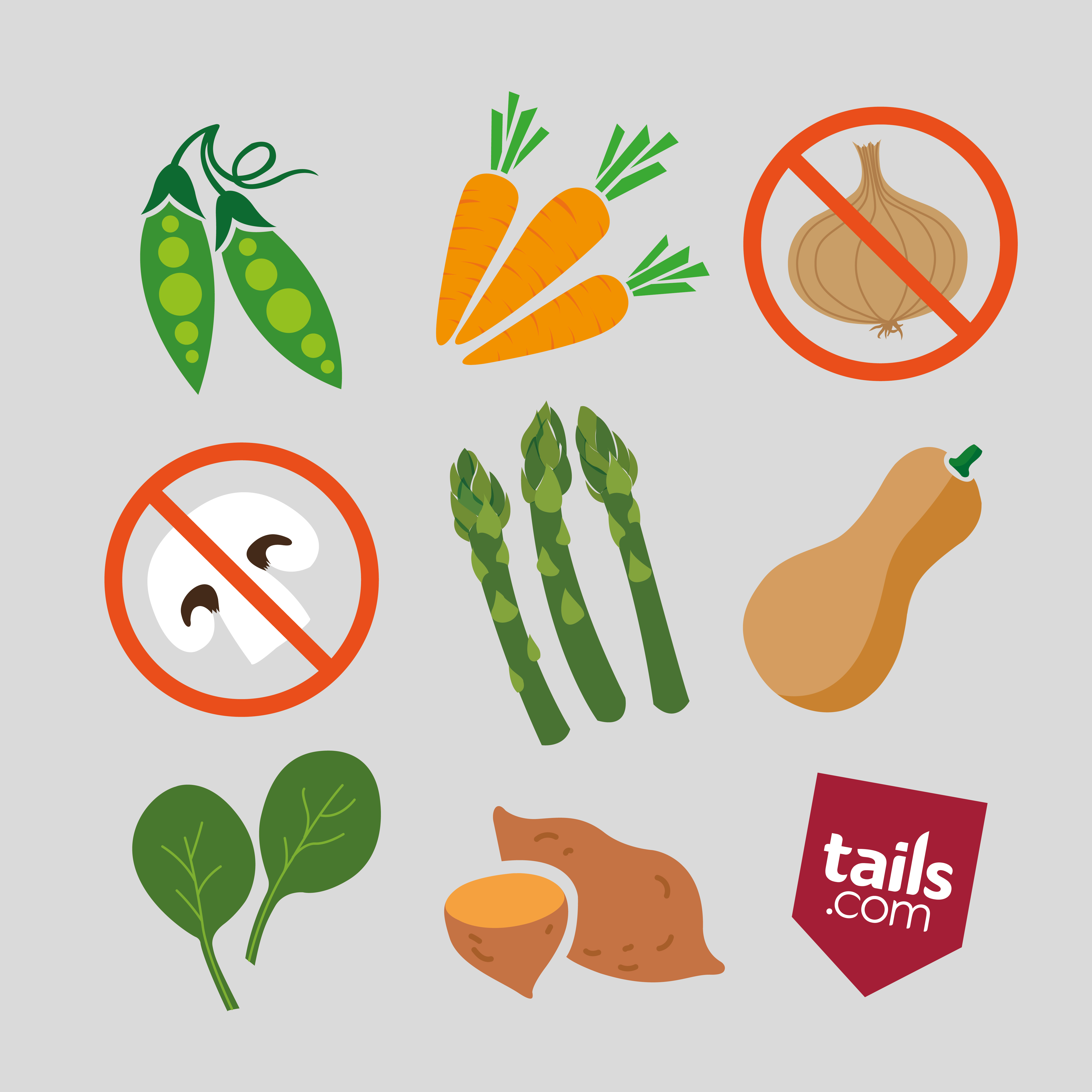Vegetables are good for dogs as well as for humans. They provide a source of vitamins, minerals and protective antioxidants that can help to keep your dog healthy. At tails.com we include high quality vegetables in our blends – in particular peas, sweet potato and potatoes – but seasonal vegetables can also be a great snack or supplement to add into your dog’s meals. As vegetables are low in calories, they can help hungry dogs or those on a diet cope with the time between meals. Here’s a quick list of some good vegetables that your dog will enjoy trying and have some additional health benefits:

- Peas: They need to be cooked but are a great source of protein, fibre, vitamin C and flavonoids which are thought to help protect against certain cancers.
- Carrots: Raw or cooked, most dogs like the taste and crunch of carrots. They have some health benefits providing a good source of beta carotene and fibre.
- Sweet potatoes: This sweet tasting vegetable is packed with nutrients, aside from both soluble and insoluble fibre, sweet potatoes provide beta carotene and minerals like potassium, manganese and magnesium. Studies have shown that sweet potatoes can help with diabetic control and can help to support the immune system as dogs get older.
- Spinach: This vegetable contains flavonoids and carotenoids which are thought to be beneficial compounds for dogs that have inflammatory and cardiac conditions as well as some cancers. Spinach also contains minerals in particular calcium, iron and potassium and vitamins (K and B6). Spinach isn’t the tastiest of vegetables but once cooked most dogs will try it and if mixed in with their main meal they may not notice it there.
- Asparagus: Now in season, dogs will often enjoy this vegetable but it is best to cook it for them. As well as beneficial vitamins (A, B1, B2, folate C and K), there are also good levels of certain minerals (chromium, copper and iron).
- Pumpkin or squash: Cooked and pureed pumpkin or squash can be a fun treat to try with your dog. Both vegetables contain good levels of vitamins and minerals (in particular, vitamin A, potassium and magnesium).
If you are just starting to offer vegetables to your dog, then try introducing these in very small amounts and check to see which your dog enjoys the most. However, vegetables should never replace the main food your dog gets as he will need additional nutrients, vitamins and minerals even if on a diet.
Just as a reminder, here are the vegetables you should avoid giving your dog as they can contain poisonous compounds: Leeks, onions, garlic, shallots, and mushrooms.


It would be nice to have a bag of “treats” that are as healthy as their mealtimes.
Of course slimming as well .